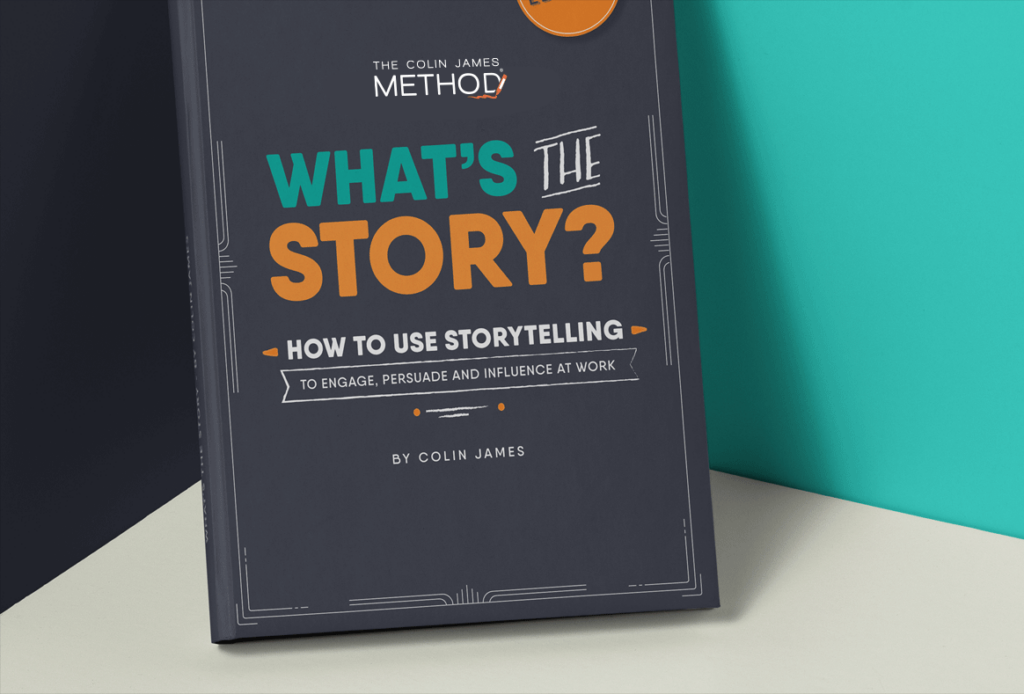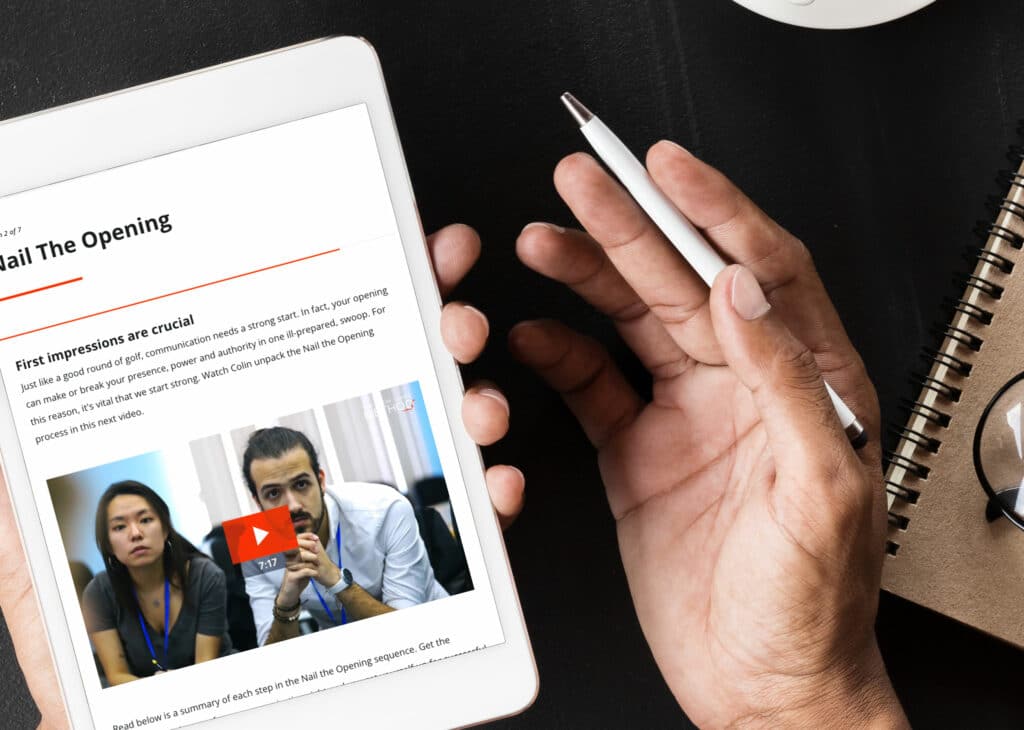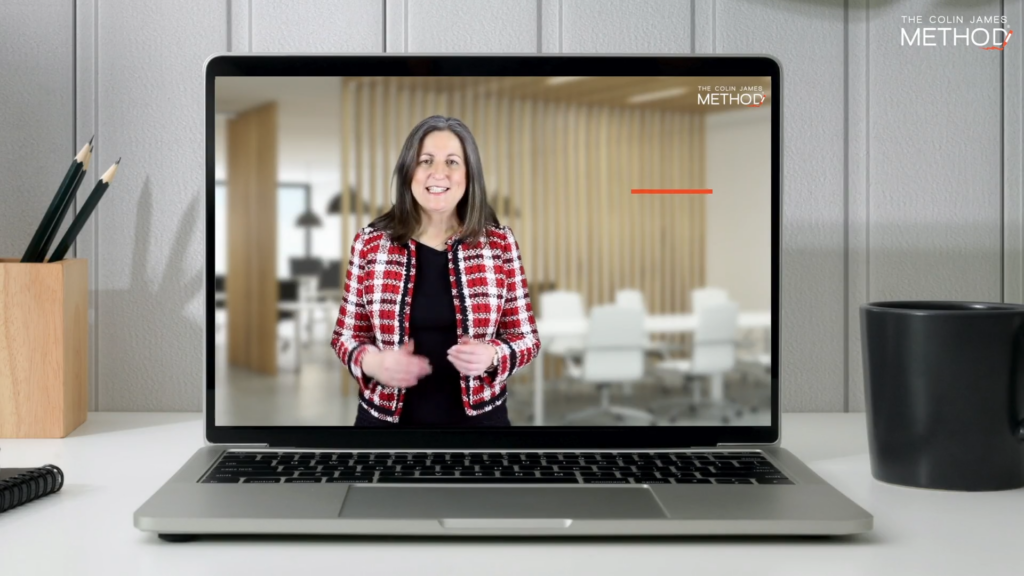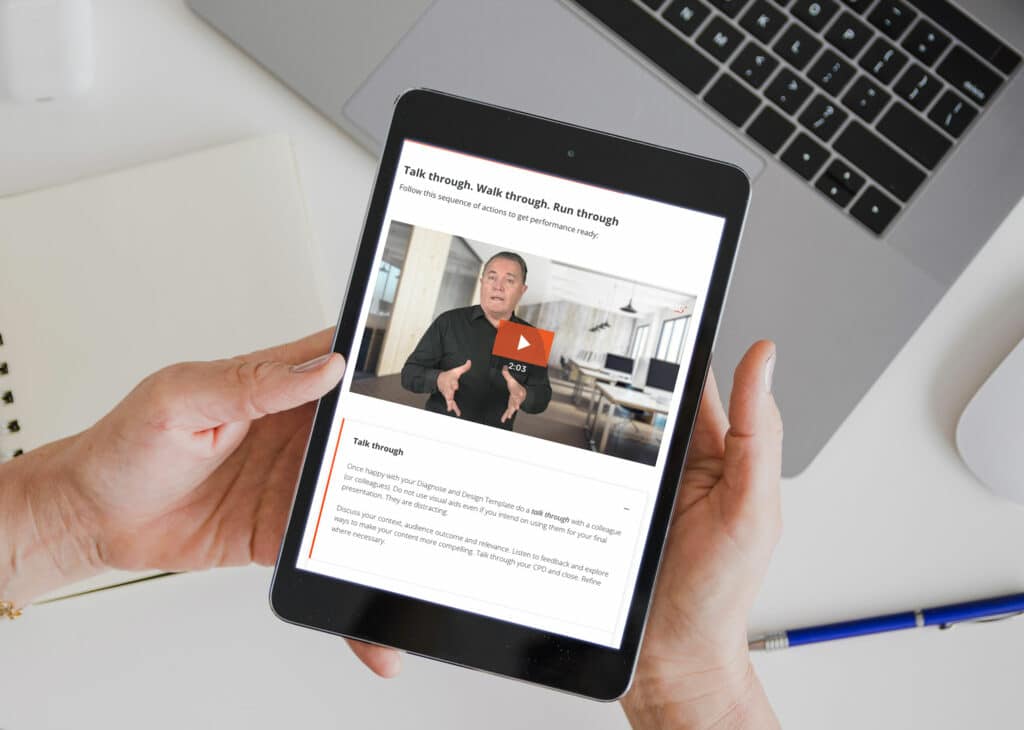Five weeks ago I had a one-on-one coaching session with a business leader responsible for a big chunk of the revenue in his organisation. Big sales team, back-office mob and the usual organisational structure you get in a business that sells lots of stuff into a vast and competitive market.
He is the head honcho. He explained that the ascension to his current position was due to his renowned selling skills in his early years and his ability to galvanise teams regionally and then at a State level to smash numbers resulting in his current national role.
“Here’s the problem,” he explained, “every time I have to stand before a group to present I go into mild panic. I can hardly sleep the night before. I over worry about the thing and find the whole process excruciating. I have to do this though. It’s part of my job. Around a table I’m fine. But on my feet in front of a group is painful. I get away with it but it’s the least enjoyable part of my job.”
Let’s call him Graeme.
On questioning, Graeme explained he uses PowerPoint every time. His presentations are on performance and plan – what we did last quarter and what we are doing next. He does road show events talking to the troops around the country. Also, he does regular presentations to his team. “My communication skills are good, I can sell and negotiate anything, it’s just the presenting thing… it gives me heart palpitations. Presentation palpitations…”
The five golden rules to alleviating presentation anxiety are as follows:
1. Attention on your audience
Self-consciousness and anxiety are indications of misplaced attention. One could argue that nervousness is self-indulgent. Presentations are not about you, they are about the audience. Here is the key question – ‘what can I give the audience?’ When you are thinking of providing nothing but value to your audience (even an audience of two) then your attention is appropriately placed.
Hoping to make a good impression, being liked or, worse, ‘getting away with it’ is amateur hour. Audience first and audience only is the mantra.
2. Perspective – the balcony thing
Anxiety narrows perspective. Notice how people will catastrophise the small stuff when they are anxious. We had a client who was a musician in an orchestra…an excellent violinist. When asked to do a solo she ‘collapsed’ at the idea of being in the spotlight. She has given thousands of performances and is universally admired for her skill and musical depth. The perspective shift we made with her was that she was not playing alone (solo), she was supporting her orchestra to be even better by leading in the solo role. She nailed it.
Another perspective ‘trick’ I learned was reading Hitchhiker’s Guide to the Galaxy by Douglas Adams, where he suggests ‘Don’t Panic!’. This is a perspective call. When you have to present, just know there are tens of thousands of people in Australia alone about to do the same thing…stand in front of a group and talk about stuff. Avoid overloading significance while recognising what you are about to do is important… for your audience.

“Avoid overloading significance while recognising what you are about to do is important…for your audience.”
3. Speak English
Nothing turns an audience off more quickly than ‘Presso Speak’…these are the hackneyed, tired and overused phrases and language that hit the off switch in people’s minds. “Good morning, thank you very much for being here, I appreciate how busy you are. Today, what I want to talk to you about is something that, at the end of the day, is critically important. It’s all about ensuring we get the buy-in of all the stakeholders on this so let’s think outside of the box for the moment and move the needle on the opportunity that lies before us.” Zzzzzzzzzzz.
Avoiding words and phrases like…
“Moving forward…”
“In terms of…”
“What I’m going to talk about is…”
“At the end of the day…”
“Absolutely, totally, utterly, actually… ” and most ‘ly’ adverbs
“I” “I” “I” overuse of the personal pronoun. (Use us, we, together, let’s…)
“Thinking outside the box/square”
“Low hanging fruit”
Speaking in natural, conversational language will be welcomed by your audiences and make you feel far more natural and real.
4. Look at your audience
Eye contact seems so obvious yet is so often avoided. Just last week I observed a Senior Leader speak eloquently and passionately for 15 minutes all the while looking at the floor as he wandered about the stage. I watched his audience slowly but inevitably disengage despite the value of his words. Human to human connection is the full sensory experience and the value of eye contact has long been understood to be fundamental to real connection.
Remember too to take in the whole room, as some of us have something called ‘left/right room bias’. We unconsciously favour one side of the room. Become aware of your bias and ensure you genuinely focus on your audience and give them respect. This will reduce your anxiety and self-consciousness immediately.
5. Choose To Enjoy It
Nervousness and excitement are neuro-physiologically almost identical. It just depends on what you call the feeling. Naming ‘nervousness’ as ‘excitement’ is a more productive way of dealing with your emotions.
“Nervousness and excitement are neuro-physiologically almost identical. It just depends on what you call the feeling.”
Then make a decision to enjoy presenting. Seems absurdly simple. Enjoying what you do has a positive and animating effect on others. At the airport in Brisbane a couple of days ago I bought some Panadol (for a sore knee) and a newspaper. The young guy behind the counter could not have been more present, engaging and real for our little transaction. I walked away feeling good.
Enjoyment is contagious and, more importantly, conveys a natural confidence.
Audiences want you to be good. No-one goes to a presentation hoping the presenter is a dud. Be a presenter who wants to add value, who is willing to genuinely connect, who speaks simply and clearly and who is comfortable and relaxed. This will rapidly dispel the nerves.
To improve your confidence and communicate with ease, register now for our one day workshop the Art Of Influence. This workshop will give you the confidence to get your next big idea across the line.
The Colin James Method® Facilitators train corporate executives to improve their professional communication skills with a proven methodology. Our highly trained Facilitators and Coaches are recognised for their experience in their fields and have worked with many individuals and organisations around the world to master the art of communication.













